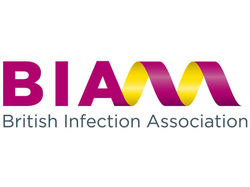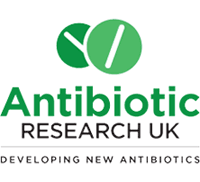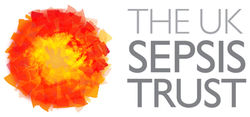#IPC2017

Health Secretary Jeremy Hunt has recently launched new plans to reduce infections in the NHS. He announced government plans to halve the number of gram-negative bloodstream infections by 2020. E. coli infections – which represent 65% of what are called gram-negative infections – killed more than 5,500 NHS patients last year and are set to cost the NHS £2.3 billion by 2018. There is also large variation in hospital infection rates, with the worst performers having more than 5 times the number of cases than the best performing hospitals.
Infection rates can be cut with better hygiene and improved patient care in hospitals, surgeries and care homes, such as ensuring staff, patients and visitors regularly wash their hands. People using insertion devices such as catheters, which are often used following surgery, can develop infections like E. coli if they are not inserted properly, left in too long or if patients are not properly hydrated and going to the toilet regularly.
These new plans build on the progress made in infection control since 2010 – the number of MRSA cases has been reduced by 57% and C. difficile by 45%.
Health Secretary Jeremy Hunt said,
"The NHS can rightly be proud that in the last 6 years we’ve reduced the number of MRSA cases by 57% and C. difficile by 45%. These aren’t abstract numbers – they show that we have prevented the needless suffering – sometimes fatal suffering – of over 60,000 people in that period. Because every avoidable infection also has a financial cost, we know that progress has also saved the NHS over half a billion pounds".
The government’s plans to prevent NHS infections include:
-
more money for hospitals making the most progress in reducing infection rates with a new £45 million quality premium
-
independent Care Quality Commission (CQC) inspections focusing on infection prevention based on E. coli rates in hospitals and in the community, and taking action against poor performers
-
the NHS publishing staff hand hygiene indicators for the first time
-
displaying E. coli rates on wards, making them visible to patients and visitors in the same way that MRSA and C. difficile are currently shown
-
improving training and information sharing, so NHS staff can learn from the best in cutting infection rates
-
appointing a new National Infection Lead, Dr Ruth May
Dr Ruth May, new National Infection and Prevention Lead, said:
"This is a clear plan to achieve real change across the NHS focusing on a combination of strict oversight from the CQC and the collection, publication and intelligent use of data which will ensure organisations improve infection control and help us to make sure poor performers get the support they need to improve quickly".
Alongside the plan to reduce E. coli rates, an additional £60 million will be allocated to the ‘Getting It Right First Time’ programme. First pioneered by Professor Tim Briggs in orthopaedics, the programme will now be expanded to another 18 surgical specialties, building on the initial investment of £2.5 million.
The Getting It Right First Time programme seeks to improve patient experience by replicating the work of the best clinicians across the health service, including cutting infection rates resulting from surgery. The expansion of the programme will focus on infection control and aims to save the NHS £1.5 billion each year.
Health Secretary Jeremy Hunt said:
"Taken together, these measures are intended to achieve a dramatic reduction in hospital infections, reducing enormous human pain and suffering in the process. They will make us better at knowing when to use antibiotics and better at knowing when not to use them. They will save doctors and nurses time, and save the NHS money. But most of all they will be another vital step in making NHS care something we can all be proud of as the safest and highest quality anywhere on the planet".
A third of E. coli infections are now resistant to antibiotics and those who are infected with a resistant strain are twice as likely to die as those who pick up a non-resistant strain. These new plans are also part of the government’s commitment to tackle antimicrobial resistance, which includes resistance to antibiotics.
E. coli infections have increased by a fifth in the last 5 years. Targeting preventable infections like E. coli helps to make surgeries and care homes safer for patients and reduce the need for antibiotics, therefore reducing the opportunity for infections to develop a resistance to them.
Since April 2015 the number of people screened for sepsis has significantly increased, and it is now being diagnosed and treated quicker than ever before. However, one in four acutely ill patients is still not being tested early enough.
Anyone can develop sepsis after an injury or minor infection, although some people are at higher risk such as those with a weakened immune system, a serious illness, the very young or very old, or those who have just had surgery or wounds as a result of an accident.
Professor Sir Bruce Keogh said:
“Doctors, nurses and other health professionals are spotting and treating more cases of sepsis than ever before, but there is still more we can do to reduce the number of families experiencing the heartache of losing a loved one from sepsis".
Nearly a year on from the launch of NHS England’s Sepsis Action Plan much has been done, but the next wave of activity is already underway and further measures to help support healthcare professionals to recognise and treat sepsis early are expected over the course of the next year. These include:
-
The Secretary of State has committed to a package of support, to aid earlier diagnosis of sepsis in young children
-
Public Health England is working in partnership with the UK Sepsis Trust to deliver a campaign to help parents and carers of children under 5 to improve their knowledge of what sepsis is, the symptoms and when to seek urgent healthcare advice
Sir Bruce outlined further initiatives:
-
New incentives for hospitals, building on the introduction of previous financial incentives in 2015 – new 2017 guidance will be linked with those aimed at reducing antibiotic resistance
-
Improving consistency and transparency of reporting – NHS England intends to introduce a sepsis specific indicator to the Clinical Commissioning Group Improvement and Assessment Framework in 17/18. The new ratings will provide a snapshot of how well different areas of the country are identifying and treating sepsis, showing areas in need of improvement, but also highlight areas of best practice for sharing amongst professionals
-
Distribution of new educational materials to support healthcare professionals – Health Education England have produced new education and training materials to increase awareness of sepsis amongst professionals.
Sir Bruce also called on health commissioners and providers to take local action to apply best practice aimed at improving sepsis diagnosis and treatment. These are:
-
Safety netting for GPs and parents: Some GP software companies have already introduced pop-up reminders and printed information for GPs to give to parents of sick children explaining what to look out for and when to bring the child back to be urgently seen again. All commissioned software, in all practices, should include such a package, to ensure the information is available consistently
-
Early Warning Score system: to improve the identification and treatment of sepsis across the whole patient pathway, all areas should use a consistent Early Warning Score to assess how sick patients are across the whole local health system – from hospitals, to ambulance trusts, to GP practices
-
Information on sepsis included in the ‘Red Book’: The personal child health record or Red Book is given to every new parent to keep track of their child’s health and progress. The Royal College of Paediatrics and Child Health has updated the national template to include information on how to tell if your child is seriously ill.
These initiatives are central themes for the Knowlex national Infection Prevention and Control conference being held on February 22nd in London. Key speakers representing NHS Improvement, NHS England and Public Health England will share their thoughts and plans to turn these themes into reality.
Following on from productive sessions in London and Manchester, Knowlex will to continue the vital process of knowledge exchange in our first event of the new year at The Brewery. Developing the themes of those 2016 exchanges, professionals from across the sphere of healthcare will assemble in London to hear from experts on various aspects of infection prevention and control, from rapid diagnostics to surgical site infection to antibiotic prescribing practices. And as the dust settles on the final report of the Review on Antimicrobial Resistance, we will look to the future, at the ways Jim O’Neill’s key recommendations might be transformed into meaningful action.
Although forecasts are uncertain on the costs of antimicrobial resistance, the impact on our lives and on our healthcare systems is bound to be huge, and those least equipped to deal with the consequences will be worst hit. While the Review on AMR - commissioned to look at the problem from an economic perspective - has now come to an end, the time has now come to act on the specific actions recommended by the team to tackle this global emergency.
Although the incidence of MRSA has fallen, a rise in cases of MSSA is highlighting the pitfalls of complacency. Skin and soft tissue infections are now by far the most widely reported sources of MRSA bacteraemia, and a worthy focus of attention. Sepsis, another key talking point, results in the loss of around 31,000 lives and costs NHS England £2 billion every year.
RESOURCES
Review Team -Tackilng Drug Resistant Infections Globally: FINAL REPORT and Recommendations
Review Team - Infection Prevention Control and Surveillance: Limiting the Development and Spread of Drug Resistance
Review Team - Vaccines and Alternative Approaches; Reducing our Depedence on Antimicrobials
Review Team - Rapid Diagnosis: Stopping Unnecessary use of Antibioitics
NICE: QS61 Standard Infection Prevention & Control
UK Five Year Antimicrobial Resistance Strategy
NICE: NG15 Guidance - Antimicrobial Stewardship: Systems and Processes for Effective Antimicrobial Medicine Use
NICE: Surgical Site Infections: Prevention and Treatment
Review Team - Tackling Drug-Resistant Infections Globally: An Overview of Our Work
Acute Trust Toolkit for Early Detection, Managment and Control of Carbapenemase-producing Enterobacteriaceae
NICE: QS113 Standard Healthcare Associated Infections
Just Say Sepsis Full Report
 |  |  |  |  |  | |
|---|---|---|---|---|---|---|
 |  |  |  |  |  |  |
 |  |  |  |  |
LATEST OFFERS
Due to unprecedented interest and demand all of our funded delegate places have been claimed. We are able to offer a daily public sector delegate rate for a limited time of £80+VAT.
Please contact our delegate team on 0161 696 4868 who will provide you with a discount code and assist with your booking.
REGISTER FOR EVENT
IPC2016 MANCHESTER HIGHLIGHTS
IPC2016 MANCHESTER GALLERY























